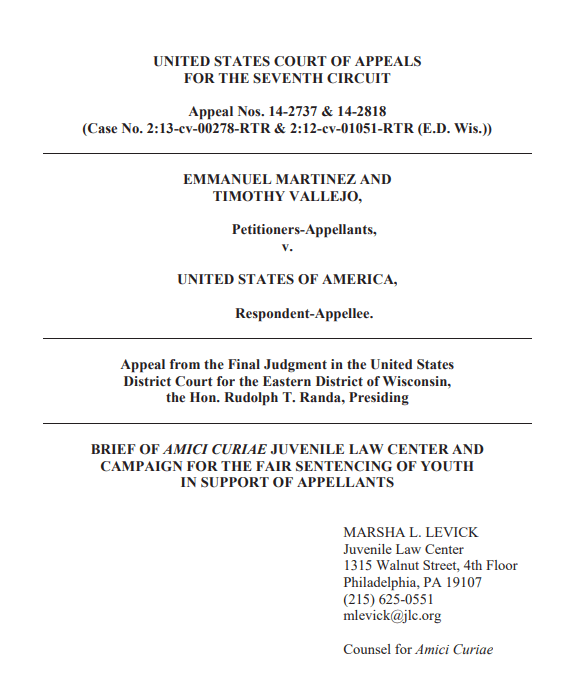
Summary of Argument
In Miller v. Alabama, 132 S. Ct. 2455 (2012), the United States Supreme Court held that the mandatory imposition of sentences of life without the possibility of parole on juvenile offenders convicted of murder is unconstitutional. Miller applies retroactively to Appellants. Miller announced a substantive rule, which pursuant to U.S. Supreme Court precedent applies retroactively. Further, even assuming the rule is procedural, Miller is a watershed rule of criminal procedure that applies retroactively. Moreover, Miller must be applied retroactively because continuing imposition of mandatory life without parole sentences on Appellants sentence is itself a violation of the Eighth Amendment; the date upon which a mandatory life without parole sentence is imposed cannot convert it into a constitutional sentence. Concerns with finality should not deny Appellants an opportunity to be resentenced; their interest in receiving a constitutional sentence outweighs interests in finality.